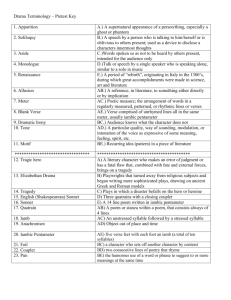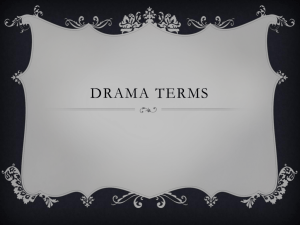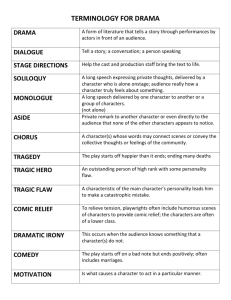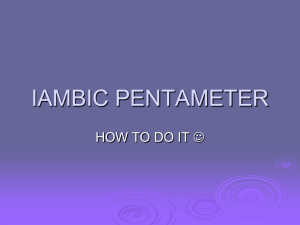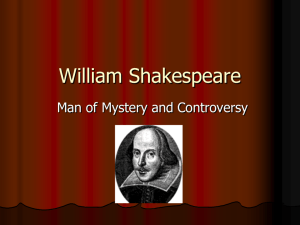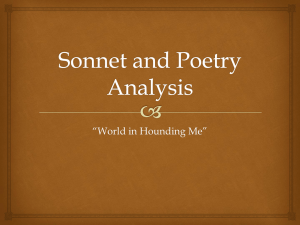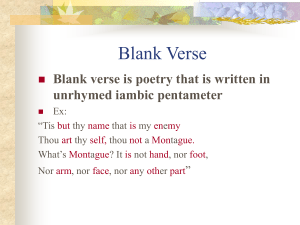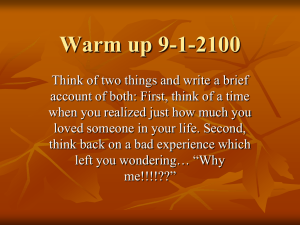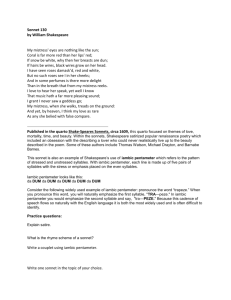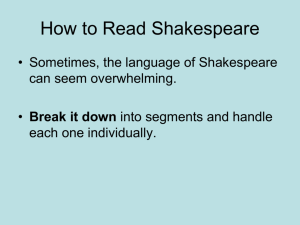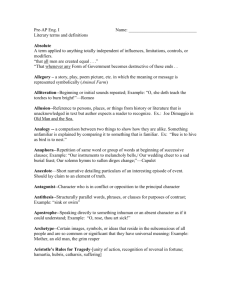Handy handout of poetry terms
advertisement
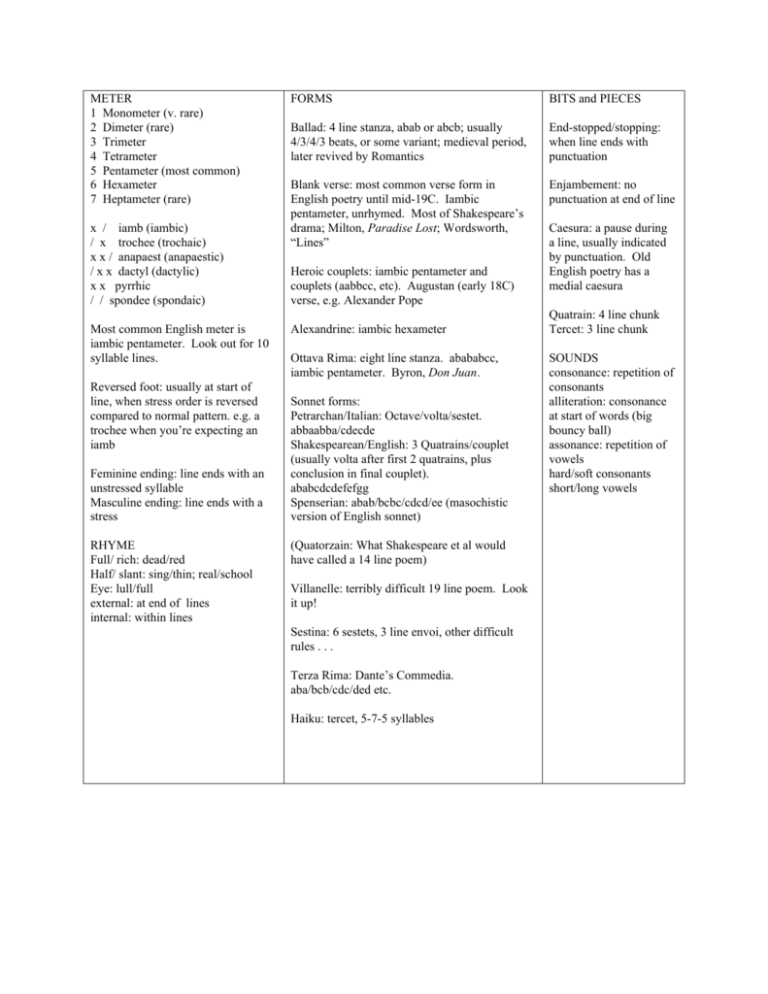
METER 1 Monometer (v. rare) 2 Dimeter (rare) 3 Trimeter 4 Tetrameter 5 Pentameter (most common) 6 Hexameter 7 Heptameter (rare) x / iamb (iambic) / x trochee (trochaic) x x / anapaest (anapaestic) / x x dactyl (dactylic) x x pyrrhic / / spondee (spondaic) Most common English meter is iambic pentameter. Look out for 10 syllable lines. Reversed foot: usually at start of line, when stress order is reversed compared to normal pattern. e.g. a trochee when you’re expecting an iamb Feminine ending: line ends with an unstressed syllable Masculine ending: line ends with a stress RHYME Full/ rich: dead/red Half/ slant: sing/thin; real/school Eye: lull/full external: at end of lines internal: within lines FORMS BITS and PIECES Ballad: 4 line stanza, abab or abcb; usually 4/3/4/3 beats, or some variant; medieval period, later revived by Romantics End-stopped/stopping: when line ends with punctuation Blank verse: most common verse form in English poetry until mid-19C. Iambic pentameter, unrhymed. Most of Shakespeare’s drama; Milton, Paradise Lost; Wordsworth, “Lines” Enjambement: no punctuation at end of line Heroic couplets: iambic pentameter and couplets (aabbcc, etc). Augustan (early 18C) verse, e.g. Alexander Pope Alexandrine: iambic hexameter Ottava Rima: eight line stanza. abababcc, iambic pentameter. Byron, Don Juan. Sonnet forms: Petrarchan/Italian: Octave/volta/sestet. abbaabba/cdecde Shakespearean/English: 3 Quatrains/couplet (usually volta after first 2 quatrains, plus conclusion in final couplet). ababcdcdefefgg Spenserian: abab/bcbc/cdcd/ee (masochistic version of English sonnet) (Quatorzain: What Shakespeare et al would have called a 14 line poem) Villanelle: terribly difficult 19 line poem. Look it up! Sestina: 6 sestets, 3 line envoi, other difficult rules . . . Terza Rima: Dante’s Commedia. aba/bcb/cdc/ded etc. Haiku: tercet, 5-7-5 syllables Caesura: a pause during a line, usually indicated by punctuation. Old English poetry has a medial caesura Quatrain: 4 line chunk Tercet: 3 line chunk SOUNDS consonance: repetition of consonants alliteration: consonance at start of words (big bouncy ball) assonance: repetition of vowels hard/soft consonants short/long vowels
